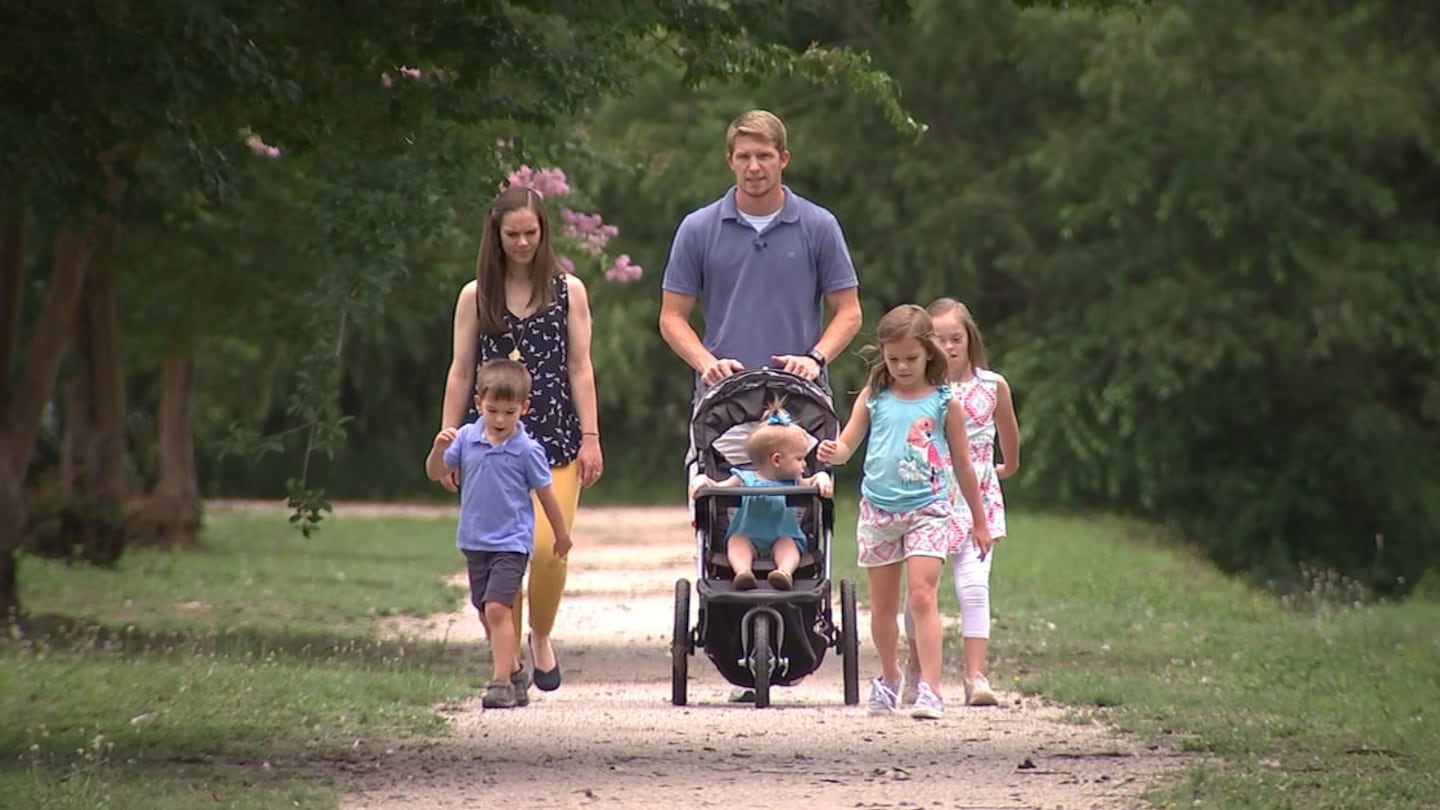ATLANTA — Georgia pastor Stephen Brinkman lived cancer-free for 10 years before his brain tumor returned earlier this year.
In the decade since, he’s become a father of four in a quiet Columbus suburb with his high school sweetheart.
Now, he’s out of Columbus every day by 6 a.m., missing breakfast with the kids to make the two-hour drive to Atlanta for treatment at The Emory Proton Therapy Center.
Emory’s facility, which opened its doors in December 2018, is one of fewer than 30 proton therapy centers in the country, and the only one in Georgia.
Dr. Jim Zhong, a radiation oncologist at Emory's Winship Cancer Institute, explained the difference between proton therapy and traditional X-ray therapy to Channel 2 Action News.
“Imagine coloring with a dull crayon. That’s kind of the more traditional X-ray beam,” Zhong said. “Using protons, we’re using a very, very fine-tipped color pencil, and we’re able to give radiation dose to the tumor in a very precise way.”
The fine-tuned radiation dose also limits the side effects related to long-term radiation, which Zhong recommends for children and young adults like Brinkman, who has a good prognosis.
“Traditionally, chemotherapy, radiation and surgery worked in conjunction in treating all types of cancers,” Zhong said. “Proton therapy is really aimed at patients who have a long lifetime expected ahead of them.”
The technology that makes it all possible consists of three main parts: the cyclotron, vacuum tube and the gantry.
A 90-ton cyclotron energizes the protons, which then travel through a vacuum tube as long as Juniper Street at almost the speed of light. Finally, a 240-ton machine called a gantry directs the proton beam toward the patient’s tumor at just the right angle, with laser-thin precision.
So much so, that Brinkman doesn’t even feel it.
“I don’t feel anything when it’s happening,” Brinkman shared. “It’s so quiet in there, and they play your favorite music for you.”
At the time of this report, he was more than halfway through the treatment plan, and reported feeling good with energy to match.
“I get up and I walk out and I feel fine. I’m hoping it stays that way,” Brinkman said.
He said that his biggest worry was not the cancer shaping his brain tumor. Rather, it was that cancer would shape his family’s life.
“One of my fears and one of the things [that] I think is so real for people everywhere is that things begin to define life,” the young father said. “I in no way want this to be a defining aspect of who we are as a family.”
So he and his wife Emily are careful not to, turning his treatment appointments into family day trips to the Georgia Aquarium and World of Coke.
“That’s what I want, just decades more, to get to be a dad, get to be a husband,” Brinkman said. “I’m so determined that we’re gonna beat cancer.”
Cox Media Group





